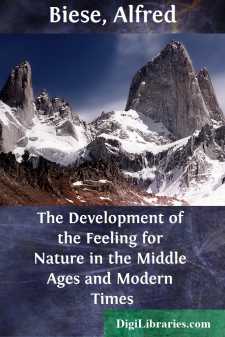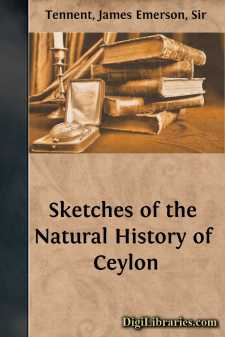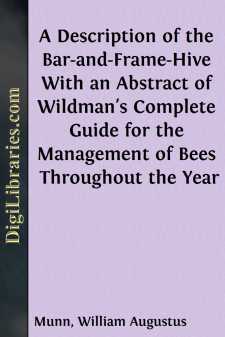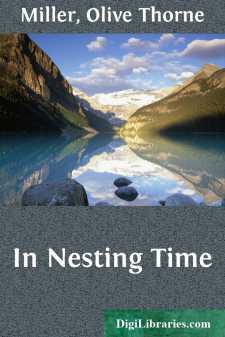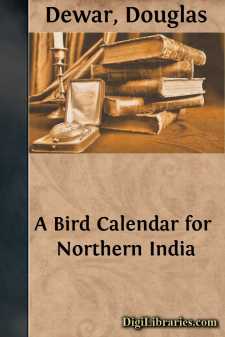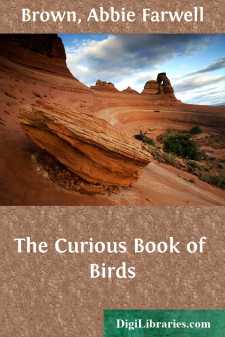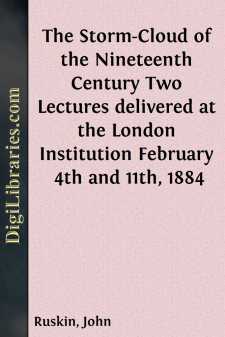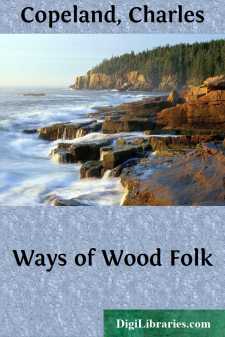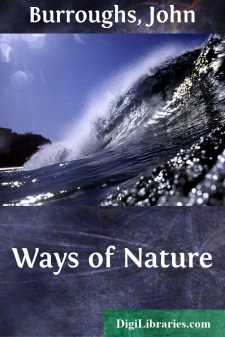Nature
Nature Books
Sort by:
by:
Alfred Biese
INTRODUCTION Nature in her ever-constant, ever-changing phases is indispensable to man, his whole existence depends upon her, and she influences him in manifold ways, in mind as well as body. The physical character of a country is reflected in its inhabitants; the one factor of climate alone gives a very different outlook to northerner and southerner. But whereas primitive man, to whom the darkness of...
more...
INTRODUCTION. A considerable portion of the contents of the present volume formed the zoological section of a much more comprehensive work recently published, on the history and present condition of Ceylon. But its inclusion there was a matter of difficulty; for to have altogether omitted the chapters on Natural History would have impaired the completeness of the plan on which I had attempted to...
more...
PREFACE Having been frequently requested to explain the use of the bar-and-frame-hive, in the management of bees, I have been induced to print the following pamphlet, to point out the advantages this new hive possesses over the common ones. I have added extracts from various authorities to show the importance of transporting bees for a change of pasturage, and thus prolonging the honey harvest....
more...
BABY BIRDS. "Ears have they, but they hear not," may be said of all the world. Tragedies and comedies go on continually before us which we neither see nor hear; cries of distress and prattle of infants, songs of love and screams of war, alike fall upon deaf ears, while we calmly discuss the last book or the news from Borriboo-lah-Gha, as completely oblivious as if all this stirring life did not...
more...
by:
Douglas Dewar
JANUARYMH Take nine-and-twenty sunny, bracing English May days, steal from March as many still, starry nights, to these add two rainy mornings and evenings, and the product will resemble a typical Indian January. This is the coolest month in the year, a month when the climate is invigorating and the sunshine temperate. But even in January the sun's rays have sufficient power to cause the...
more...
THE DISOBEDIENT WOODPECKER ONG, long ago, at the beginning of things, they say that the Lord made the world smooth and round like an apple. There were no hills nor mountains: nor were there any hollows or valleys to hold the seas and rivers, fountains and pools, which the world of men would need. It must, indeed, have been a stupid and ugly earth in those days, with no chance for swimming or sailing,...
more...
by:
John Ruskin
PREFACE. The following lectures, drawn up under the pressure of more imperative and quite otherwise directed work, contain many passages which stand in need of support, and some, I do not doubt, more or less of correction, which I always prefer to receive openly from the better knowledge of friends, after setting down my own impressions of the matter in clearness as far as they reach, than to guard...
more...
by:
Anonymous
OUR PETS. This is Pol-ly's own cat, Top-sy. She looks ve-ry prim and quiet; but if you play with her, you will find she is a ve-ry mer-ry lit-tle cat. She will jump up-on the ta-ble at break-fast, and run off with Pol-ly's toast; and if mam-ma be wri-ting a let-ter, Top-sy will steal soft-ly a-long the arm of the so-fa, and rub her paw o-ver the last word mam-ma has writ-ten, and make a great...
more...
by:
Charles Copeland
I. FOX-WAYS. Did you ever meet a fox face to face, surprising him quite as much as yourself? If so, you were deeply impressed, no doubt, by his perfect dignity and self-possession. Here is how the meeting generally comes about. It is a late winter afternoon. You are swinging rapidly over the upland pastures, or loitering along the winding old road through the woods. The color deepens in the west; the...
more...
by:
John Burroughs
WAYS OF NATURE I was much amused lately by a half-dozen or more letters that came to me from some Californian schoolchildren, who wrote to ask if I would please tell them whether or not birds have sense. One little girl said: "I would be pleased if you would write and tell me if birds have sense. I wanted to see if I couldn't be the first one to know." I felt obliged to reply to the...
more...


